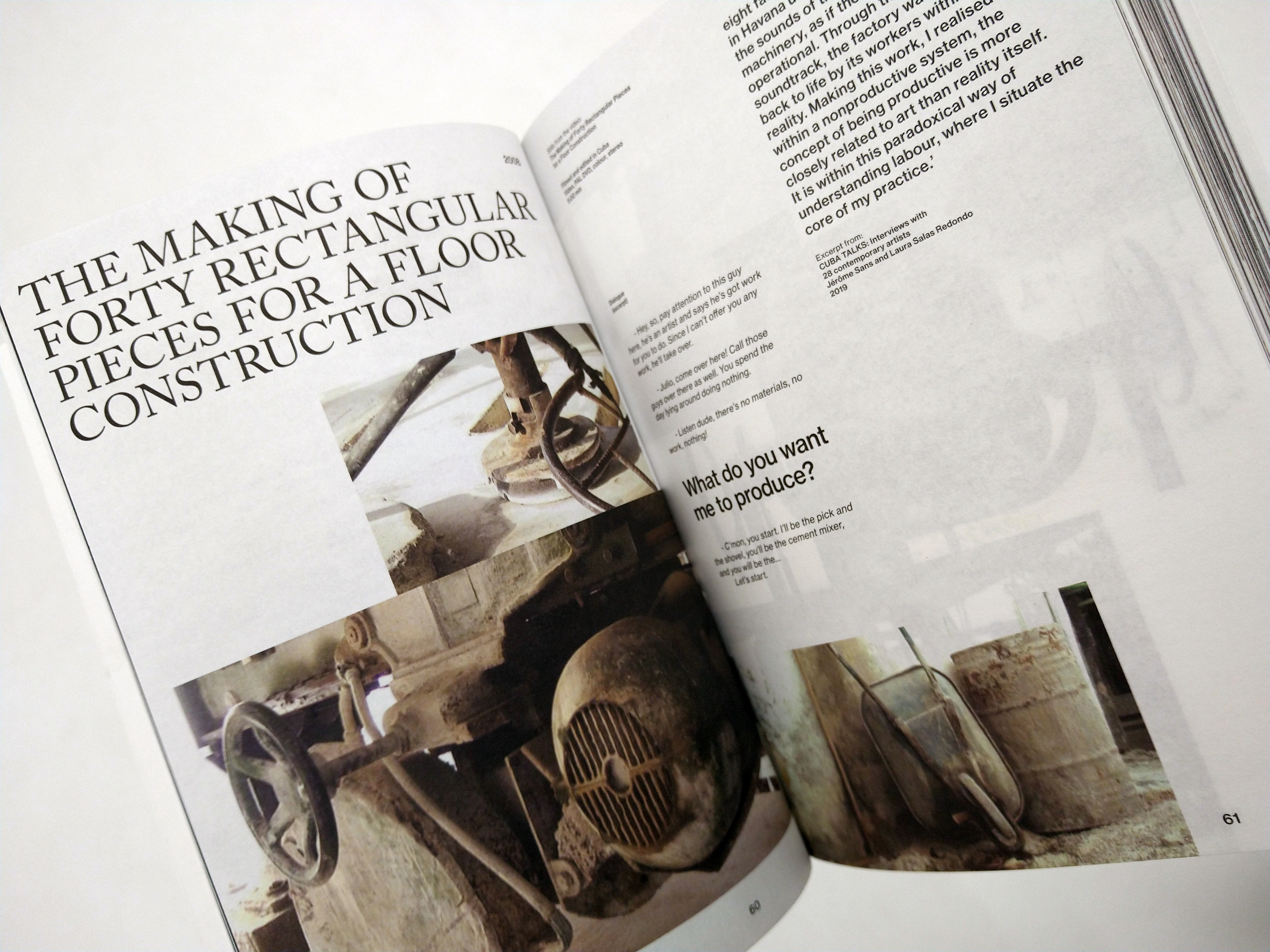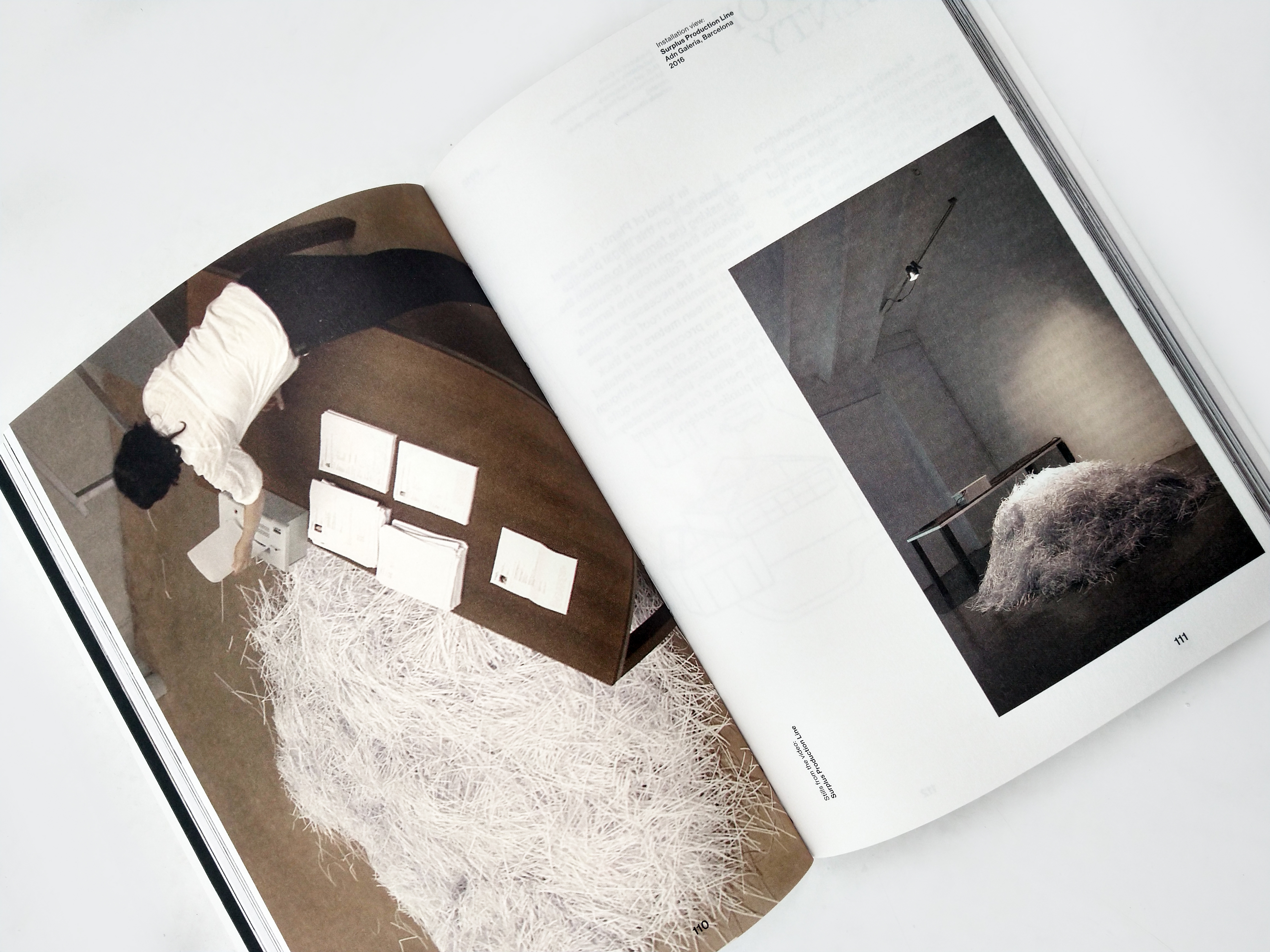THE PARADOX OF LABOUR -
A reader on the work
of Adrian Melis
(2021)
Produced by Pori Art Museum,Pori, Finland and Adn Galeria,Barcelona, Spain with the support of PUBLICS, Helsinki and Mareike Spendel / Design and Layout: Adrian Melis / Image Management: Fadri Cadonau / Texts: Rose Marie Barrientos, Alessandra Troncone, Anni Venäläinen / Editing and proofreading: Denise Araouzou / Printing: Impresión OFFSET DERRA
Barcelona, Spain
Synopsis:
‘The Paradox of Labour’ is the most comprehensive analysis to date of Adrian Melis’s practice providing insight into the themes explored in his work while also delving into the socio-political ‘readymades’ in socialist Cuba and neoliberal Europe that have shaped it. The reader is divided according to his work’s core themes and begins with his earliest videos, laying the groundwork for an in-depth understandin of his methodology and areas of interest henceforth. It assemble text contributions, archival images, interviews and the artist’s notes to collectively dissect labour’s propensity to (re)produce subjectivities and ideologies.Long forgotten is the Stakhanovite Movement in Cuba, where labour is now a paradox, and where everyone works the bare minimum or shows up to work to fall asleep. By looking at Melis’s body of workspanning the last fifteen years, the reader traces the Cuban workers’rise and fall and reveals unlikely similarities to the white-collar worker of the West. How could opposing ideologies produce such similar states of alienation?


